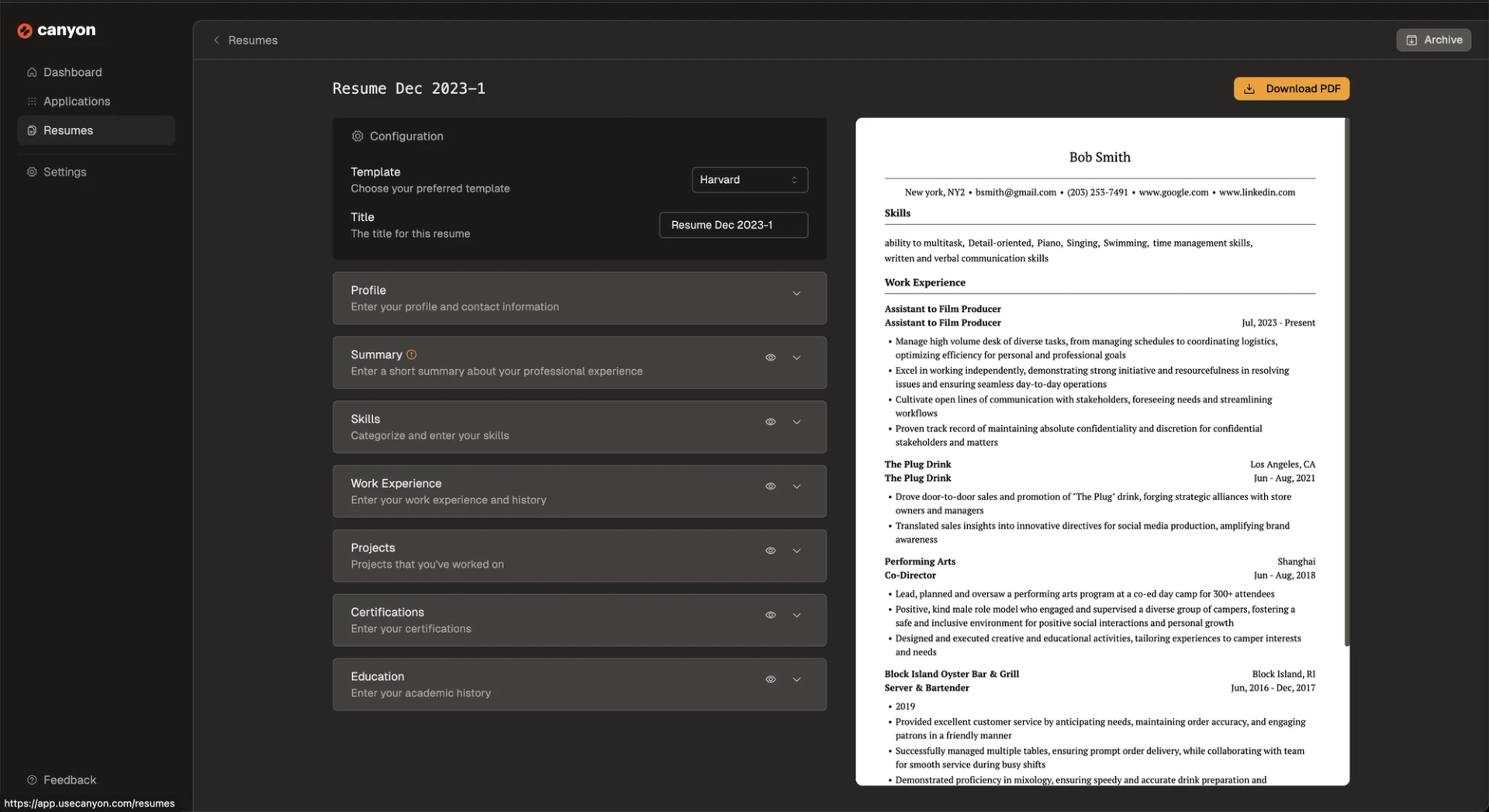What to Put On a Resume

Crafting an Impressive Resume: Essential Elements to Include for Career Success
In today's competitive job market, a well-crafted resume is a crucial tool for landing the job of your dreams. Your resume serves as your personal marketing document, highlighting your skills, qualifications, and accomplishments. To stand out from the crowd, it's essential to include the right elements that showcase your unique strengths and make a lasting impression on potential employers. In this blog post, we will explore the key things to put on a resume to maximize your chances of success in the job application process.

Contact Information Start your resume with your full name, phone number, email address, and LinkedIn profile (if applicable). Ensure that your contact information is current and professional, making it easy for employers to reach out to you.
Professional Summary or Objective Include a brief professional summary or objective at the beginning of your resume. This section should provide a snapshot of your career goals, skills, and what you bring to the table. Tailor this section to match the specific job you're applying for.
Work Experience List your work experience in reverse chronological order, starting with your most recent job. Include the name of the company, your job title, and the dates of employment. Provide a concise description of your responsibilities and highlight key accomplishments using quantifiable metrics whenever possible. This section should demonstrate your impact and contributions to previous employers.
Education Include details about your educational background, starting with your most recent degree. Include the name of the institution, degree earned, major or field of study, graduation date, and any relevant academic honors or achievements.
Skills Create a dedicated section to showcase your skills. Divide them into categories such as technical, soft, and language skills. Tailor this section to align with the requirements of the job you're applying for. Use keywords from the job description to pass through Applicant Tracking Systems (ATS).
Certifications and Training Highlight any relevant certifications or additional training that enhances your qualifications. This could include industry-specific certifications, workshops, or online courses that demonstrate your commitment to professional development.
Achievements and Awards If you have received any accolades, recognition, or awards during your career, be sure to include them on your resume. This could include employee of the month awards, sales achievements, or any other honors that showcase your excellence in the workplace.
Projects Include a section on notable projects you've worked on, especially if they are relevant to the position you're applying for. Provide details on your role, the project's objectives, and the outcomes achieved.
Professional Memberships If you are a member of any professional organizations related to your industry, include this information on your resume. It demonstrates your commitment to staying connected with your field and staying informed about industry trends.
Volunteer Work If you've volunteered for organizations or causes, consider including a section highlighting your volunteer experience. This can showcase your commitment to community involvement and demonstrate valuable transferable skills.
Additional Sections (Optional) Depending on your unique experiences, you may choose to include additional sections such as publications, languages spoken, or hobbies. However, ensure that these sections are relevant to the job and contribute positively to your overall professional image.
What not to put in a resume
Personal Information Overload While it's essential to include your contact information, refrain from including unnecessary personal details such as marital status, age, or social security number. These details are typically not relevant to your professional qualifications and can potentially lead to discrimination.
Objective Statements Objective statements have become outdated. Instead of focusing on what you want from the job, use a professional summary or a career summary that highlights your skills, accomplishments, and what you can bring to the table.
Unprofessional Email Addresses Ensure your email address is simple and professional. Avoid using nicknames or overly casual addresses, as they can create a negative impression. Opt for a combination of your first and last name for a more polished appearance.
Generic Job Descriptions Simply listing job duties without showcasing your accomplishments and contributions can make your resume blend in with the crowd. Use quantifiable achievements and highlight how you added value in your previous roles to stand out.
Irrelevant Work Experience Tailor your resume to the specific job you're applying for. Omit any irrelevant work experience that doesn't contribute to your qualifications for the position. Focus on showcasing experiences that align with the job requirements.
References It's unnecessary to include references on your resume. Instead, save space and provide references when requested during the interview process. Be sure to inform your references in advance so they are prepared to speak on your behalf.
Hobbies and Interests Unless your hobbies directly relate to the job or demonstrate relevant skills, it's best to leave them off your resume. Keep the focus on your professional qualifications to maintain a concise and impactful document.
Unrelated Skills Avoid listing skills that are not applicable to the job you're seeking. Tailor your skills section to match the requirements of the position, emphasizing the most relevant abilities.
Unprofessional Fonts and Formatting Choose a clean and professional font for your resume, and maintain consistency in formatting throughout. Avoid using flashy fonts or excessive formatting, as they can distract from the content and make your resume difficult to read.
Clichés and Overused Phrases Steer clear of clichés and overused phrases, such as "hardworking team player" or "detail-oriented." Instead, use specific examples and quantifiable achievements to demonstrate your skills and attributes.
Conclusion
Crafting a compelling resume is a critical step in securing the job you desire. By including these key elements, you can present a comprehensive and impressive document that effectively communicates your qualifications and sets you apart from other candidates. Remember to tailor your resume for each job application, emphasizing the skills and experiences most relevant to the position. With a well-crafted resume, you'll be better positioned to make a strong first impression and advance in your career.
Try out Canyon to make sure you have all the necessary components of a resume, are emphasizing your impact properly, and tailoring your resume for each job application!
Related Articles





